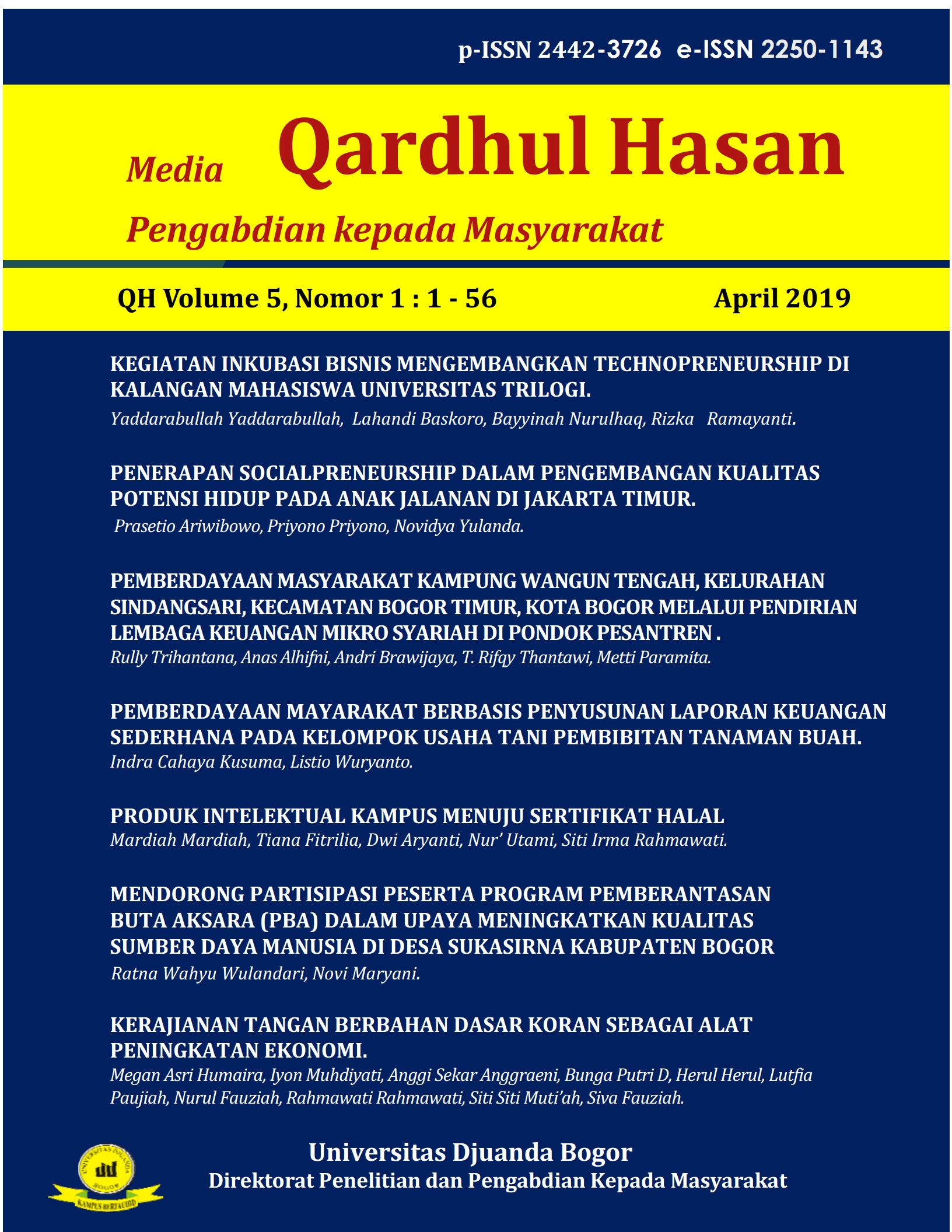EDUTOURISM TRAINING TO IMPROVE COMMUNITY EMPOWERMENT AT TOURISM VILLAGE
DOI:
https://doi.org/10.30997/qh.v8i3.6227Keywords:
Ciburial Tourist Village, Edutourism, TrainingAbstract
Ciburial tourist village is a village that has a beautiful landscape and an interesting cultural diversity. Various kinds of tourism potential are divided into several parts, namely cultural and artistic tourism, culinary tourism, and nature tourism. Judging from its natural and cultural conditions, Ciburial tourism village has the potential to be developed as an Edutourism. Based on these conditions, the purpose of the community service program is in the form of training on understanding Edutourism, the potential that can be explored as Edutourism, and steps for implementing Edutourism. The service method is carried out in several ways, namely observation to identify the potential of Edutourism, interviews with various sources, and training provided to the community regarding Edutourism. Based on the results it was found that the potential that could be developed into Edutoursim was culinary and cultural tourism, namely honey cultivation, tofu factories, and also bamboo crafts. After knowing the potential for edutourism in Ciburial, the concrete implementation steps that need to be taken next are planning, execution, continuous development, and cooperation. Cooperation with partners and also educational institutions need to be established to increase the level of visits to the Ciburial Tourism Village
References
Biro Pusat Statistik. (2020). Penduduk Indonesia Tahun 2020
Damanik, J. (2009). Isu-isu krusial dalam pengelolaan desa wisata dewasa ini. Jurnal kepariwisataan Indonesia. 5 (3). 127-137
Kementerian Koordinator Bidang Perekonomian Republik Indonesi. (2021).Pembangunan Kepariwisataan Melalui Pengembangan Desa Wisata Untuk Meningkatkan Pertumbuhan Ekonomi, Siaran Press, HM.4.6/458/SET.M.EKON.3/12/2021. 8 Desember 2021.
Keputusan Bupati Bandung Nomor: 556.42/ Kep. 71- Dispopar/ 2011 tentang Desa Wisata di Kabupaten Bandung
Hermawan, H. (2017). Pengaruh Daya Tarik Wisata, Keselamatan dan Sarana Wisata Terhadap Kepuasan serta Dampaknya terhadap Loyalitas Wisatawan: Studi Community Based Tourism di Gunung Api Purba Nglanggeran. Wahana Informasi Pariwisata: Media Wisata, 15(1), 562–57.
Hermawan, H., Brahmanto, E., dkk. (2018). Upaya Mewujudkan Wisata Edukasi di Kampung Tulip Bandung. Jurnal Abdimas BSI. 53-62
Maryani E & Indrianty, S. (2021). Mapping of Ciburial Village Potential as Education-Based Ecotourism. Hongkong Journal of Social Science, Vol. 58 Autumn/Winter 2021. http://hkjoss.com/index.php/journal/article/view/453/449
Ojo & Yusepo. (2013). Edutourism : International Student’s Decision Making Process In Selecting A Host University In Malaysia European Journal of Business and Management ISSN 2222-1905 (Paper) ISSN 2222-2839 (Online www.iiste.org) )
Ritchie, Carr, dan Cooper. (2003). Managing Educational Tourism Clevedon Channel View Publications
Downloads
Published
How to Cite
Issue
Section
License
Copyright (c) 2022 Septy Indrianty, Enok Maryani

This work is licensed under a Creative Commons Attribution-ShareAlike 4.0 International License.
- Copyright on articles is retained by the respective author(s), without restrictions. A non-exclusive license is granted to Qardhul Hasan: Media Pengabdian kepada Masyarakat to publish the article and identify itself as its original publisher, along with the commercial right to include the article in a hardcopy issue for sale to libraries and individuals.
- Articles published in Qardhul Hasan: Media Pengabdian kepada Masyarakat are licensed under a Creative Commons Attribution-ShareAlike 4.0 International license. You are free to copy, transform, or redistribute articles for any lawful purpose in any medium, provided you give appropriate credit to the original author(s) and the journal, link to the license, indicate if changes were made, and redistribute any derivative work under the same license.
- By publishing in Qardhul Hasan: Media Pengabdian kepada Masyarakat, authors grant any third party the right to use their article to the extent provided by the Creative Commons Attribution-ShareAlike 4.0 International license.


